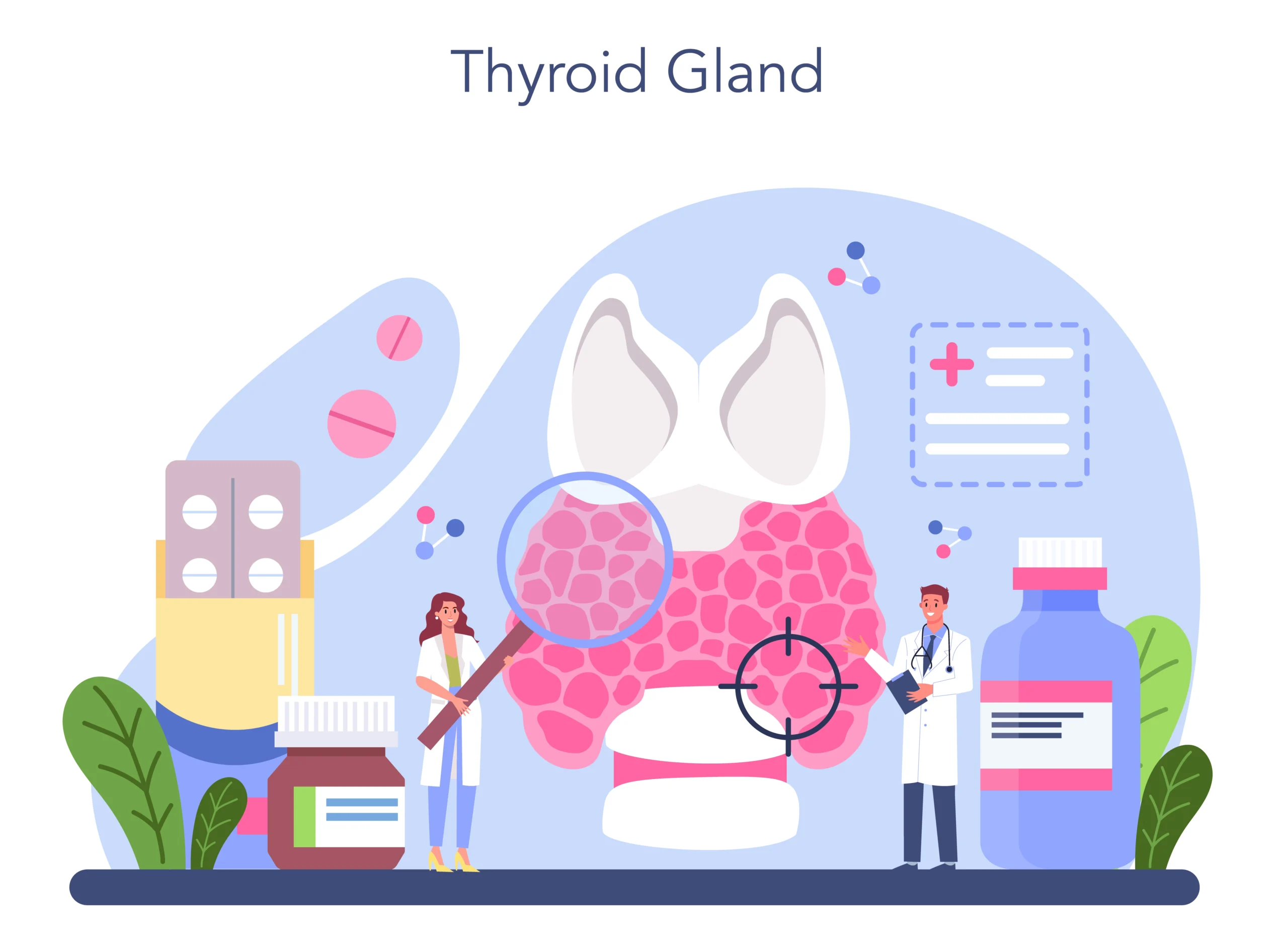Introduction
The thyroid gland, though small, plays a pivotal role in the overall well-being of the human body. It is a butterfly-shaped organ located at the base of the neck, and it influences nearly every cell, tissue, and organ. Understanding its functions, disorders, and treatments is crucial for maintaining metabolic harmony and overall health. This article delves into the intricacies of the thyroid gland, its impact on the body, common disorders, and the steps one can take to ensure thyroid health.
Anatomy and Function of the Thyroid Gland
Structure of the Thyroid
The thyroid gland is situated in the front of the neck, just below the Adam’s apple. It consists of two lobes connected by a thin bridge of tissue called the isthmus. The gland is richly supplied with blood vessels, which underscores its importance in bodily functions.
Hormones Produced by the Thyroid
The thyroid produces two primary hormones: thyroxine (T4) and triiodothyronine (T3). These hormones are critical for regulating metabolism, heart rate, and body temperature. They are synthesized from iodine, a mineral that must be ingested through diet. Another important hormone, calcitonin, is produced by the thyroid and helps regulate calcium levels in the blood.
Role of Thyroid Hormones
Thyroid hormones influence a variety of physiological processes:
- Metabolism: They accelerate the basal metabolic rate, influencing how quickly the body uses energy.
- Growth and Development: Thyroid hormones are essential for normal growth in children and for brain development during infancy.
- Cardiovascular Function: They increase heart rate and output, thereby influencing blood circulation.
- Temperature Regulation: These hormones help maintain body temperature by regulating the rate of energy production in cells.
Common Thyroid Disorders
Hypothyroidism
Causes and Symptoms
Hypothyroidism occurs when the thyroid gland does not produce enough hormones. Common causes include Hashimoto’s thyroiditis (an autoimmune condition), iodine deficiency, and certain medications. Symptoms of hypothyroidism can be subtle and develop slowly, including fatigue, weight gain, cold intolerance, and depression.
Diagnosis and Treatment
Diagnosis involves measuring levels of thyroid-stimulating hormone (TSH) and thyroid hormones (T4 and T3) in the blood. Treatment typically involves daily use of synthetic thyroid hormone levothyroxine, which normalizes hormone levels.
Hyperthyroidism
Causes and Symptoms
Hyperthyroidism is characterized by an overactive thyroid gland that produces excess hormones. Causes include Graves’ disease (another autoimmune condition), thyroid nodules, and excessive iodine intake. Symptoms of hyperthyroidism include weight loss, rapid heartbeat, sweating, and anxiety.
Diagnosis and Treatment
Diagnosis is confirmed through blood tests showing low TSH and high T4 or T3 levels. Treatment options include antithyroid medications, radioactive iodine therapy, and sometimes surgery to remove part or all of the thyroid gland.
Thyroid Nodules and Cancer
Identification and Risks
Thyroid nodules are lumps in the thyroid gland that can be benign or malignant. While most nodules are non-cancerous, a small percentage can be thyroid cancer. Risk factors for thyroid cancer include exposure to radiation, family history, and certain genetic conditions.
Diagnosis and Management
Nodules are typically discovered during physical exams or imaging studies. Fine-needle aspiration biopsy is used to determine if a nodule is cancerous. Treatment for thyroid cancer often involves surgery, radioactive iodine treatment, and thyroid hormone therapy.
Ensuring Thyroid Health
Nutritional Considerations
Importance of Iodine
Adequate iodine intake is crucial for thyroid function. Iodine is found in foods such as fish, dairy products, and iodized salt. However, both iodine deficiency and excess can lead to thyroid dysfunction.
Role of Selenium
Selenium is another essential nutrient for thyroid health. It helps in the conversion of T4 to the active T3 hormone and protects the thyroid gland from oxidative damage. Brazil nuts, seafood, and eggs are good sources of selenium.
Lifestyle Factors
Stress Management
Chronic stress can adversely affect thyroid function. Practices such as yoga, meditation, and regular physical activity can help manage stress and support thyroid health.
Regular Check-ups
Regular medical check-ups can help detect thyroid issues early. People with a family history of thyroid disorders or symptoms of thyroid dysfunction should undergo periodic screening.
Conclusion
The thyroid gland, though small, has a profound impact on overall health and well-being. Understanding its functions, recognizing the symptoms of thyroid disorders, and adopting a lifestyle that supports thyroid health are crucial steps in maintaining metabolic harmony. Regular check-ups, a balanced diet rich in essential nutrients, and effective stress management are key to ensuring optimal thyroid function. By prioritizing thyroid health, individuals can enhance their quality of life and prevent potential complications associated with thyroid disorders.
In summary, the thyroid gland is a vital organ that warrants attention and care. Its influence on metabolism, growth, and various bodily functions underscores the importance of maintaining its health through informed choices and proactive healthcare measures.


